
Photoblog: Life in Erbil's women's clinic
The pair set up this clinic together. Every day they tend to the needs of dozens of women fleeing from the war in Syria or from the Iraqi provinces controlled by IS.
Huda graduated in medicine from the University of Mosul in 1987, and then specialised in gynecology. "I love my job, it's my entire life, but now it is very complicated," she says. "We doctors are few, and there are many women in need."
 |
|
Dr Huda, who was forced from her home in Mosul when IS took over the city, tends to more than 30 women each day [Arianna Pagani] |
 |
|
The women wait for their turn to see the doctor. The clinic has also become a meeting place for women to give each other support [Arianna Pagani] |
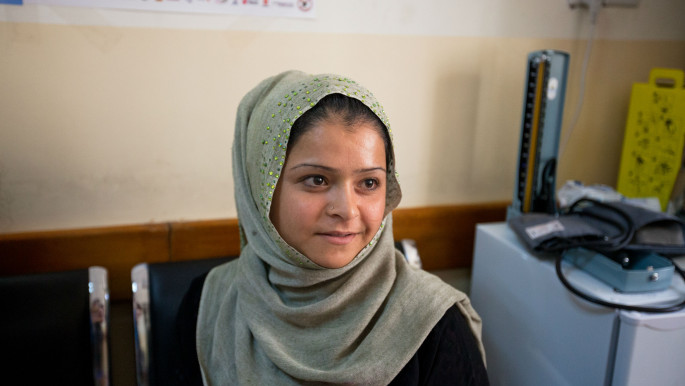 |
|
Many Iraqi displaced women marry very young in an effort to support their family. This woman is expecting her second child [Arianna Pagani] |
 |
|
The clinic's equipment was donated by an Italian NGO, allowing the women to be treated in good conditions [Arianna Pagani] |
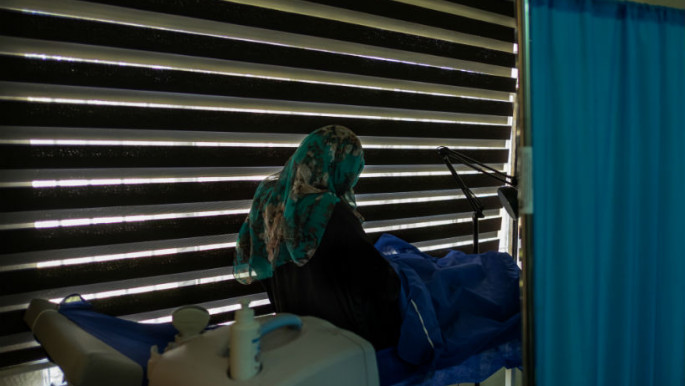 |
|
The war in Syria and Iraq has particularly affected women [Arianna Pagani] |
 |
|
Rawnaq studied at a nursing school in Mosul, but fled Nineveh province when IS took over the area [Arianna Pagani] |
 |
| Most of the dozens of women who attend the clinic each day are from the restive Anbar and Nineveh provinces of Iraq, others are from Syria [Arianna Pagani] |
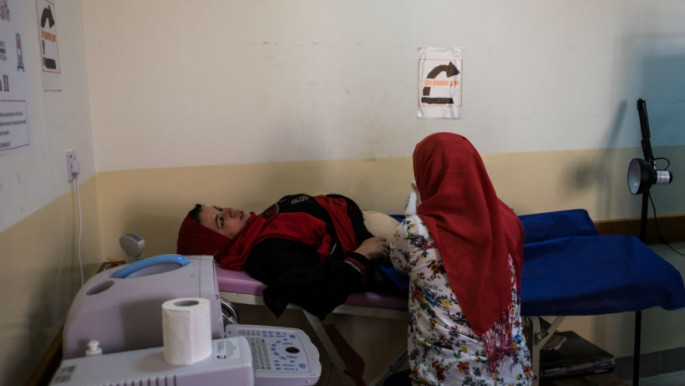 |
|
Founded in 2015, thanks to the support of UPP, the clinic offers women free gynecological examinations, infection control and treatment for sexually transmitted diseases [Arianna Pagani] |
 |
| Nurse Rawnaq and Dr Huda are both internally displaced persons, like any of the women they treat [Arianna Pagani] |
 |
|
The clinic also helps women with antenatal care, postnatal care, and family planning [Arianna Pagani] |
 |
|
The most common problems of patients are caused by infections due to unhygienic conditions and numerous pregnancies [Arianna Pagani] |
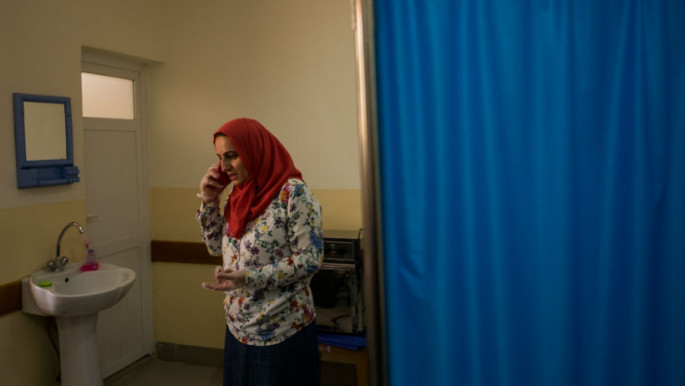 |
|
Dr Huda graduated in medicine from the University of Mosul in 1987 and has since specialised in gynecology, working for the public hospital in the city [Arianna Pagani] |
 |
| Disposable equipment is not available, so all tools are regularly cleaned and sterilised [Arianna Pagani] |
 |
| Children are a common sight at the clinic. This girl is accompanying her mother, who is checking up on her third pregnancy [Arianna Pagani] |
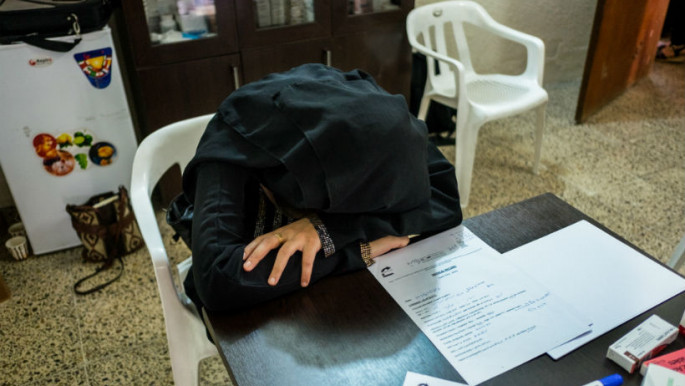 |
| A refugee newly arrived in Iraq from Syria finds out she is pregnant [Arianna Pagani] |
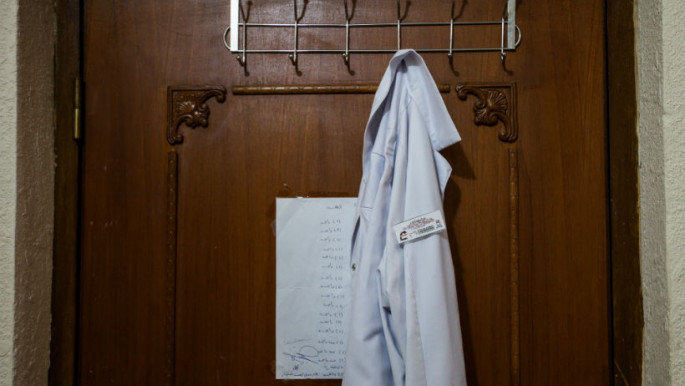 |
|
The two women, a Sunni Muslim and a Christian Assyrian, work tirelessly for the women visiting the clinic [Arianna Pagani] |
 |
| Ultrasound scanning is just one of the many services offered by Dr Huda [Arianna Pagani] |
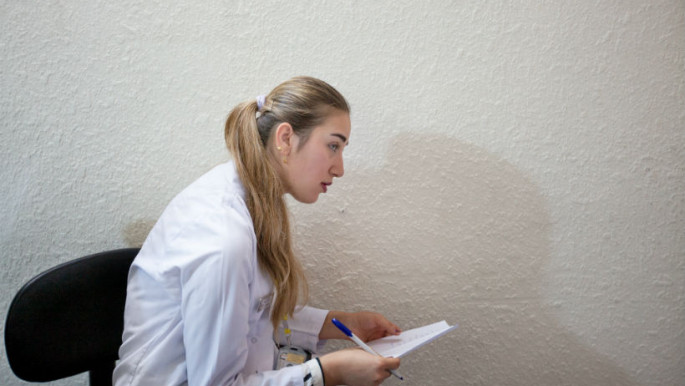 |
| An ancillary nurse helps triage patients ahead of being seen by the doctor [Arianna Pagani] |
 |
| The clinic has resources to help ensure patients' privacy when it is needed [Arianna Pagani] |
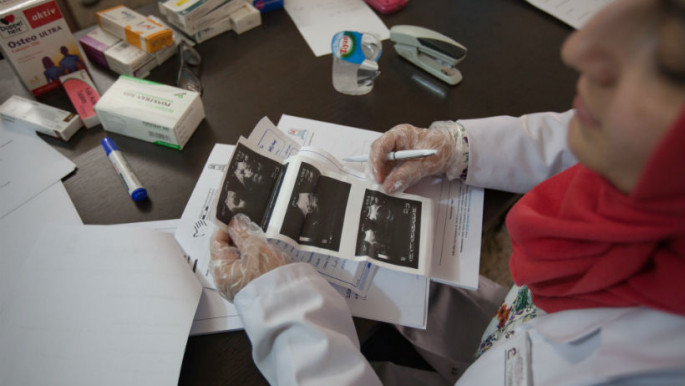 |
|
After the first screening and consultation, Dr Huda must rely upon the city public hospital for cases of difficult pregnancy [Arianna Pagani] |
 |
| Women wait to see the doctor. In many cases, this becomes a learning experience for those girls accompanying their mothers [Arianna Pagani] |
 |
| The clinic is brightly decorated - this mural was created a year ago by an Italian artist to make the place more appealing to those in need [Arianna Pagani] |
Arianna Pagani is a photojournalist currently based outside Mosul. Follow her on Twitter: @Arianna_Pagani_
For more on this story, read Sara Manisera's in-depth report: Women displaced from Mosul join forces at women's clinic
![Kasnasan clinic, Erbil [Arianna Pagani] Kasnasan clinic, Erbil [Arianna Pagani]](/sites/default/files/styles/large_16_9/public/media/images/36F98F75-805B-4CC0-81A7-14B122569162.jpg?h=d1cb525d&itok=VkQpIhyv)



